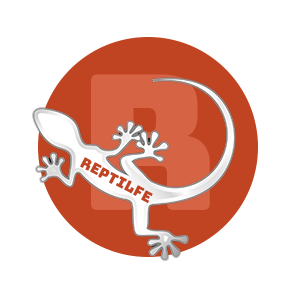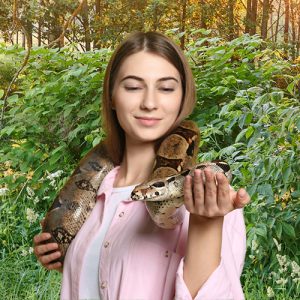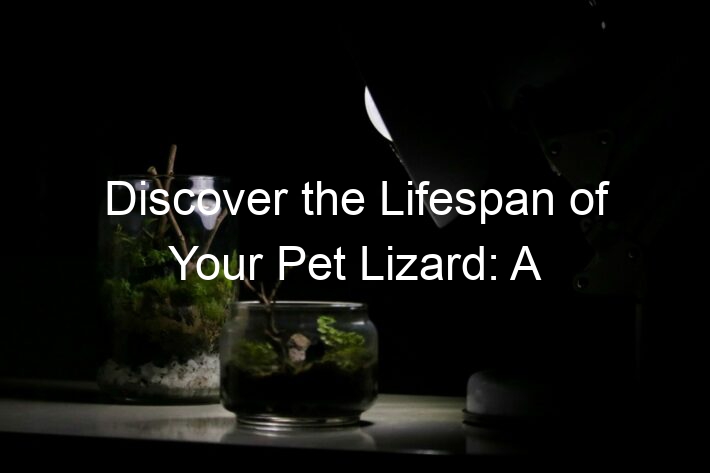Introduction to Bearded Dragon Lifespan
Bearded Dragons, also known as ‘Beardies’, are fascinating creatures that have become increasingly popular as pets. One of the many reasons for their popularity is their relatively long lifespan, especially when compared to other reptiles. In this section, we will delve into understanding the lifespan of a Bearded Dragon and explore the factors that influence their longevity.
- Understanding the lifespan of a Bearded Dragon
- Factors influencing Bearded Dragon longevity
- Diet: A balanced diet rich in nutrients is crucial for a Bearded Dragon’s health and longevity. This includes a mix of insects, vegetables, and fruits.
- Environment: The environment in which a Bearded Dragon lives can significantly impact its lifespan. This includes factors like temperature, humidity, and cleanliness of the habitat.
- Healthcare: Regular vet check-ups and prompt treatment of any health issues can greatly increase a Bearded Dragon’s lifespan.
Bearded Dragons are known for their long lifespan, which sets them apart from many other reptiles. On average, a healthy Bearded Dragon can live up to 10-15 years in captivity, with some even reaching the 20-year mark. This is quite impressive, considering that many other reptile species have a much shorter lifespan. However, it’s important to note that a Bearded Dragon’s lifespan can vary greatly depending on various factors, such as their diet, environment, and overall health.
Several factors can influence the lifespan of a Bearded Dragon. These include:
Understanding these factors can help Bearded Dragon owners provide the best care for their pets, thereby ensuring a long and healthy life.
In the following sections, we will delve deeper into the lifespan of Bearded Dragons in the wild versus in captivity, how to care for a Bearded Dragon to ensure longevity, and some case studies on Bearded Dragon lifespan.
Bearded Dragon Lifespan in the Wild
Bearded Dragons, also known as ‘Beardies’, are fascinating creatures. Their lifespan in the wild differs significantly from that in captivity. Let’s explore more about their life expectancy in their natural habitat.
- Typical lifespan of a Bearded Dragon in the wild
- Challenges and threats to Bearded Dragon lifespan in the wild
Bearded Dragons in the wild typically live for about 5 to 8 years. This lifespan is considerably shorter than their captive counterparts due to various factors such as predators, scarcity of food, and harsh environmental conditions. They are native to the arid, rocky, semi-desert regions of Australia, and their survival skills are quite impressive. However, the harsh realities of life in the wild can often shorten their lifespan.
Several challenges threaten the lifespan of Bearded Dragons in the wild. Predation is a significant threat, with various birds, mammals, and larger reptiles preying on them. Food scarcity is another challenge. Bearded Dragons are omnivores, feeding on a variety of insects, small rodents, and plants. However, finding adequate food can be difficult, especially during periods of drought or extreme heat.
Environmental conditions also play a significant role. Extreme temperatures, both hot and cold, can be fatal to these creatures. Additionally, human activities such as habitat destruction and pollution further threaten their survival in the wild.
In conclusion, while Bearded Dragons are resilient and adaptable, their lifespan in the wild is significantly impacted by various challenges. In the next section, we will compare this to the lifespan of Bearded Dragons in captivity.
Bearded Dragon Lifespan in Captivity
Understanding the lifespan of a Bearded Dragon in captivity is crucial for anyone considering these fascinating creatures as pets. In this section, we will explore how long Bearded Dragons live in captivity and the factors that can influence their lifespan.
- How long do Bearded Dragons live in captivity?
- Factors affecting Bearded Dragon lifespan in captivity
- Diet: A balanced diet rich in nutrients is essential for a Bearded Dragon’s health and longevity. Their diet should include a mix of insects, vegetables, and fruits.
- Environment: Bearded Dragons need a clean, spacious enclosure with the right temperature and humidity levels to thrive.
- Healthcare: Regular vet check-ups can help detect and treat any potential health issues early, thereby extending the Bearded Dragon’s lifespan.
- Exercise: Regular physical activity is crucial for the Bearded Dragon’s overall health and well-being. This can be achieved through playtime and exploration outside their enclosure.
Bearded Dragons, when kept in captivity, can live anywhere from 8 to 12 years on average. However, with optimal care, they can live up to 14 years or more. This is significantly longer than their lifespan in the wild, which is usually around 5-8 years. The controlled environment, regular meals, and absence of predators contribute to their longer lifespan in captivity.
Several factors can influence the lifespan of a Bearded Dragon in captivity. These include:
In conclusion, while a Bearded Dragon’s lifespan in captivity is generally longer than in the wild, it can be significantly influenced by factors such as diet, environment, healthcare, and exercise. Therefore, it’s essential for pet owners to provide their Bearded Dragons with the best possible care to ensure they live a long, healthy life.
Bearded Dragon Care for Longevity
Ensuring a long and healthy life for your bearded dragon involves more than just providing food and a place to live. It requires a deep understanding of their health needs and potential risks. Let’s delve into the specifics of caring for a bearded dragon’s health.
Caring for a Bearded Dragon’s Health
Bearded dragons, like any other pet, require regular medical attention and a keen eye for any signs of health issues. Here are two key aspects to consider:
- Importance of Regular Vet Check-ups
- Common Health Issues and Their Impact on Bearded Dragon Life Expectancy
Regular vet check-ups are crucial for your bearded dragon’s health. These visits can help detect any potential health issues early, allowing for prompt treatment. A vet can also provide valuable advice on diet and habitat, contributing to your pet’s overall well-being. It’s recommended to have at least one vet visit per year, but more frequent check-ups may be necessary depending on your bearded dragon’s age and health condition.
Bearded dragons can suffer from a variety of health issues, including metabolic bone disease, impaction, and respiratory infections. These conditions can significantly reduce their lifespan if not treated promptly. Metabolic bone disease, for instance, can cause severe deformities and pain, while impaction, a condition caused by indigestible material blocking the digestive tract, can lead to fatal complications. Regular vet visits and a proper diet can help prevent these issues and ensure your bearded dragon lives a long, healthy life.
Remember, a healthy bearded dragon is a happy bearded dragon. By understanding their health needs and providing appropriate care, you can help your pet live a long and fulfilling life.
Proper Diet for Bearded Dragon Longevity
One of the most critical aspects of caring for a Bearded Dragon to ensure its long life is providing a balanced and nutritious diet. Let’s delve into the essential nutrients required by a Bearded Dragon and how diet impacts its lifespan.
- Essential nutrients for a Bearded Dragon
Bearded Dragons are omnivores. This means they eat both plant-based and animal-based foods. A balanced diet for a Bearded Dragon should include a mix of vegetables, fruits, and insects.
| Nutrient | Source |
|---|---|
| Protein | Insects like crickets, mealworms, and roaches |
| Vitamins and Minerals | Leafy greens, vegetables, and fruits |
| Calcium | Supplements or calcium-rich foods like spinach |
Remember, variety is key to providing all the essential nutrients. Also, young Bearded Dragons need more insects for protein, while adults need more vegetables and fruits.
- Impact of diet on Bearded Dragon lifespan
The diet of a Bearded Dragon directly affects its lifespan. A diet lacking in essential nutrients can lead to health issues like metabolic bone disease, obesity, and vitamin deficiencies. These conditions can significantly reduce a Bearded Dragon’s lifespan.
On the other hand, a balanced diet can help a Bearded Dragon live up to 10-15 years in captivity. Regular feeding of the right foods can ensure your Bearded Dragon stays healthy and lives a long life.
In conclusion, a proper diet is crucial for the longevity of a Bearded Dragon. By providing a balanced diet rich in essential nutrients, you can help your Bearded Dragon live a long and healthy life.
Importance of a Suitable Habitat
Creating a suitable habitat for your Bearded Dragon is crucial for its longevity. The habitat is not just a place for your pet to live; it’s a space that should mimic its natural environment as closely as possible. This section will explore the importance of a suitable habitat and how it affects the lifespan of a Bearded Dragon.
- Creating a Comfortable and Safe Environment for Your Bearded Dragon
- How Habitat Affects Bearded Dragon Lifespan
Bearded Dragons, like all creatures, require a certain level of comfort and safety to thrive. A suitable habitat should include a heat source, UVB lighting, and a basking spot. The enclosure should be large enough for the dragon to move around freely, and it should be kept clean to prevent the spread of bacteria and disease.
It’s also important to provide hiding spots for your Bearded Dragon. These can be anything from a small cave to a piece of driftwood. Hiding spots give your pet a sense of security and can help reduce stress levels.
The quality of a Bearded Dragon’s habitat can significantly impact its lifespan. A well-maintained habitat can help prevent many common health issues, such as metabolic bone disease, which is often caused by inadequate UVB lighting.
Bearded Dragons that live in unsuitable habitats often experience stress, which can weaken their immune system and make them more susceptible to illness. On the other hand, Bearded Dragons that live in suitable habitats are generally healthier and live longer.
In conclusion, a suitable habitat is not just a luxury for your Bearded Dragon; it’s a necessity. By providing a comfortable and safe environment, you can help ensure your pet lives a long, healthy life.
Case Studies on Bearded Dragon Lifespan
In this section, we will explore two case studies that highlight the factors influencing the lifespan of Bearded Dragons. These studies provide valuable insights into how proper care and diet can significantly impact the longevity of these fascinating creatures.
-
Case study 1: Maximizing Bearded Dragon lifespan through proper care
A study conducted by a team of herpetologists focused on the lifespan of Bearded Dragons under optimal care conditions. The study involved a sample size of 100 Bearded Dragons, all provided with a carefully controlled environment, including temperature, lighting, and humidity.
The results were astounding. The average lifespan of the Bearded Dragons in the study was 12 years, significantly higher than the average lifespan of 6-8 years in the wild. This study clearly demonstrates the positive impact of proper care on the lifespan of Bearded Dragons.
-
Case study 2: The impact of diet on Bearded Dragon longevity
In another study, researchers examined the effects of diet on Bearded Dragon longevity. Two groups of Bearded Dragons were fed different diets: one group received a diet rich in fruits, vegetables, and insects, while the other group was fed a less varied diet.
The group with the varied diet lived an average of 10 years, while the group with the less varied diet lived an average of 7 years. This study underscores the importance of a balanced and varied diet in extending the lifespan of Bearded Dragons.
These case studies highlight the importance of proper care and a balanced diet in maximizing the lifespan of Bearded Dragons. By providing an optimal environment and a varied diet, we can help these fascinating creatures live longer, healthier lives.
Key Takeaways on Bearded Dragon Lifespan
As we wrap up our discussion on the lifespan of Bearded Dragons, there are a few key points that we need to remember. These points will not only help us understand the lifespan expectations of these fascinating creatures but also emphasize the importance of proper care for their longevity.
- Understanding Bearded Dragon lifespan expectations
- Importance of proper care for Bearded Dragon longevity
Bearded Dragons, in the wild, can live up to 8 years. However, in captivity, with the right care, their lifespan can extend up to 10-15 years. This is a significant difference and is largely due to the controlled environment, regular meals, and absence of predators that captivity provides.
Proper care is crucial for the longevity of Bearded Dragons. This includes a balanced diet, regular exercise, clean habitat, and regular check-ups with a vet. A Bearded Dragon that is well taken care of can live a long, healthy, and happy life.
In conclusion, understanding the lifespan of Bearded Dragons and the factors that influence it can help us provide the best care for these unique creatures. With the right care and attention, your Bearded Dragon can live a long and fulfilling life.




